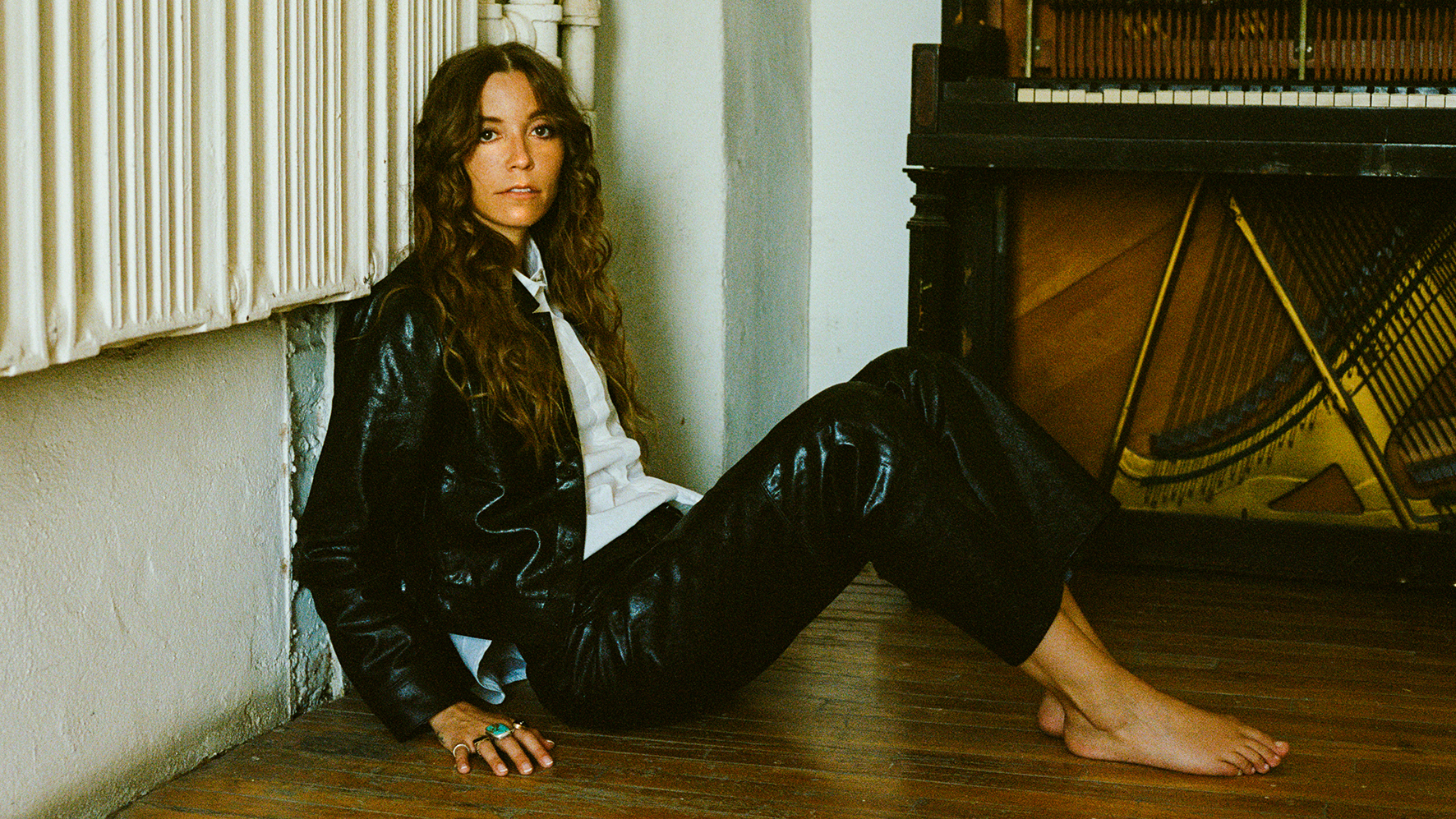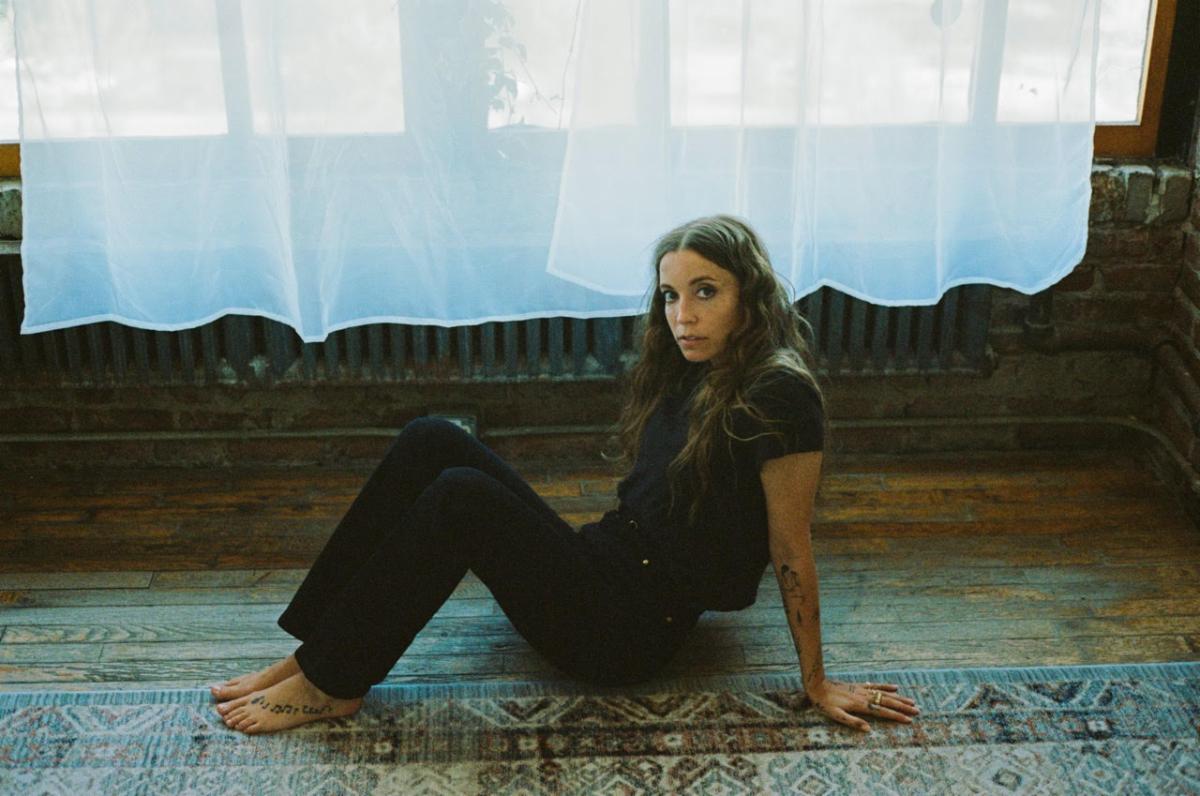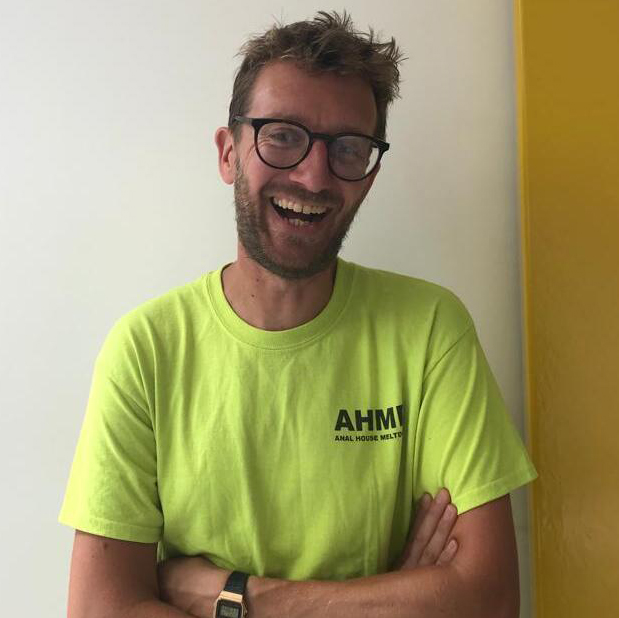“I would play solo piano gigs and a producer for Daft Punk came into the bar one night. He asked me if I wanted to join an all-female electronic band”: LP Giobbi on transitioning from jazz to dance music - and remixing Taylor Swift
Producer, DJ and classically trained pianist LP Giobbi unpicks the creative strands that have made her and the workings behind new album, Dotr

“I was on the road for 300 days last year, it just feels like you’re in a washing machine sometimes,” laughs songwriter, producer and DJ, LP Giobbi of her hectic musical life.
We’re snatching an interview in the days before LP (known as Leah Chisolm to her friends) has to jet off for yet another round of DJ dates, touring commitments and little sleep. With debut album Light Places landing in a similar electronic lane to Bonobo or TSHA, the plaudits, success and millions of streams have combined to form a relentless backdrop and foundation for the new record, Dotr.
“I’ve got the most amazing roots, my parents gave me the most amazing wings so I could fly,” LP says. “But at the same time, I’ve sometimes felt a little bit lost and I’m trying to find my way back home.”
The Grateful Dead’s track - Brokedown Palace - a firm favourite with her self-confessed ‘Deadhead’ parents, features a lyric that struck several chords - ‘Mama, mama, many worlds I’ve come/Since I first left home’ - and was among the soundtrack she’d often take refuge in after leaving the club. It fed directly into the themes and ideas that make up Dotr.
“I’d always find myself crying while listening to that track but I also lost three really important women in my life one month apart,” she explains. “I wanted the record to surpass grief and loss, and honour these women who’ve shaped me, to say thanks to them for their influence and inspiration.”
Sonic education
It was one of these female mentors - her now-passed piano teacher Caroline Horne - that LP credits with turning her onto music-making. Initially mesmerised by the record collection of her parents, it’s been an unconventional route into electronic music. Brought up in the greenery, hills and forests of Eugene, Oregon, it was her late teacher that elevated her musical journey.
“We were like two firecrackers meeting each other, she became the most incredible mentor and friend, and cultivated creativity in a way that was mind blowing,” LP says. “Our hearts collided and her joy of music was contagious. I wanted to be around her all the time.”
Want all the hottest music and gear news, reviews, deals, features and more, direct to your inbox? Sign up here.
This time with Catherine formalised musical ambitions and a stint at Berklee followed, which took Leah to the Bay Area where she began trying to capture the stray musical ends she’d found, then bind them into a career. Incongruously, it was through playing live dates at a jazz bar in San Francisco that opened up electronic music to her.
“I would play these solo jazz piano gigs and a producer for Daft Punk was in the bar one night,” she says. “He asked me if I wanted to join an all-female electronic band in LA called LEX, even though I didn’t know anything about dance music. He told me that as long as I knew music theory, it would be easy but it was actually a hard learning curve and a wild ride.”

The jazz background continues to underpin all LP’s creative endeavours in electronic music. It’s often the push and pull between these two seemingly disparate sonic worlds that directly influenced her production approach.
“I felt like I had to unlearn a lot at the beginning,” she explains. “Dance music is body music, it’s there to make listeners feel good and move whereas at jazz school, it was more intellectualised. Playing as fast as you can was seen as more impressive than feeling.”
“As I’ve grown in confidence, I’ve started bringing that knowledge back into my productions,” LP continues. “I now play the piano when I DJ, I know what key I’m in so I can live loop and sequence my piano where appropriate.”
LP attributes her love for DJing as informing her own productions. She began by playing records in hotel lobbies, then progressing to opening slots at clubs where her selections would set the tone for the night ahead.
“I first started making music with a little less energy, more suited to outside peak time hours. The first of my tracks that I wasn’t completely humiliated by was Take My Hand,” she states.
“It was released in 2021 but it’s found its way back into my sets this summer. Afro-house has been everywhere, so I felt that this classic house type of sound helps reset the room. Take My Hand offers this joyous and uplifting moment.”
Dotr
LP has multiple strings to her bow - alongside the constant touring, she runs her own label Yes Yes Yes which is more dancefloor focused, and Femme House, an initiative aimed at advocates for gender inclusion in dance music. Unsurprisingly then, this new record Dotr came into focus in between plane flights and snatched recording sessions.
“Between gigs I would try to find studios with hardware gear as so much of my writing is in the box while catching aeroplanes,” she says of the record’s gestation. “I’m constantly writing and would sneak off for sessions here and there. With this album, I wanted to go beyond the dancefloor, to create music that can be enjoyed in a different setting.”
Dotr features an enviable list of collaborators - Jacob Banks, Danielle Ponder, Brittany Howard and multi-instrumentalist Panama among them. For many, it’s the first time they have lent their talents to electronic tracks.
“It was a dream list for me, particularly as I really wanted to work with artists and singers outside the dance world,” LP says. “I love collaborating with artists who give so much more than a typical topline when working on a dance-pop song. Then the themes of the album didn’t appear to me until I started out DJing again. It’s a beautiful, amazing life on the road, but it’s also hard, there are days when I don’t see the sun.”
The final song Carolyn is an emotionally charged tribute to her teacher and was made after LP had been informed of her passing. It’s based around a phone recording of the last time the pair played together.
“I pulled that recording up and decided to write a song in a major key for the first time in my life,” LP says. “I was very intent on doing this as most dance tracks I make are in a minor key. The song just flowed and within a few hours, there it was. It was so cathartic, I’ve yet to play it out without crying.”
In the studio
As a jazz student, LP used to have to transcribe the great composers to understand them and further her learning. It’s a method she’s pinned to her experiments in electronics.
“I’d spend hours researching how Four Tet does drums, then go off and try to recreate it myself,” she says. “I’ll never get close but usually come up with something cool in the process, then from there I can figure out where it can live in a set.”
She works in Ableton for the main part and has a passion for certain pieces of hardware, including the Prophet 6, Moog Muse and TR-808 drum machine. LP bounces this with a love of producers including Kink, Wallace and DJ Tennis, “the tweakiest motherfucker she knows”.
I get excited about playing with synths although I do try to limit myself and the number of plugins I have
“I get excited about playing with synths although I do try to limit myself and the number of plugins I have,” she says. “The song has to be able to stand on its own, or it can get lost in gear. Then sometimes the sound design is covering how interesting the song actually is. I try to keep it limited - then if it still feels good, I’ll get to work on enhancing it.”
Collaborations are also a big part of the inspiration for LP, helping to push her into a fresh creative space where musical minds spin differently. For these creative partnerships to be successful, there has to be room for both spontaneity and mistakes.
“You have to feel safe to come up with ideas that might sound stupid to you but could be gold to someone else,” she advises. “You usually have to plough your way through a bunch of stupid ideas before you get to the good one. Don’t get too hung up on anything.”
Remixing is another creative road LP has embraced. Her re-imaginings have ranged from the Grateful Dead (via her Dead House project) to Taylor Swift and everyone in between.
“I’ve never wanted to be pigeon-holed as a remix artist but I do really enjoy them, I love throwing everything out other than the vocals and coming up with something new,” she explains.
“The remix that taught me the most was Dom Dollar’s Pump the Brakes,” she says. “I ended up duplicating the vocals and putting them through a vocoder, harmonising them to make an emotional track. It was such a fun challenge to make it as different as possible and the whole process taught me to keep a very open mind about my music.”
With Dotr out imminently, and a hefty round of DJ dates in the US to enjoy, LP’s musical adventures show no sign of letting up anytime soon. How does she keep the energy levels high and everything on target?
“Managing time is my biggest challenge,” she says. “But I’m constantly inspired by listening to other music, there’s so much great stuff out there. I’d advise anyone to keep their ears open and just remember the music is what it’s all about.”
Jim Ottewill is an author and freelance music journalist with more than a decade of experience writing for the likes of Mixmag, FACT, Resident Advisor, Hyponik, Music Tech and MusicRadar. Alongside journalism, Jim's dalliances in dance music include partying everywhere from cutlery factories in South Yorkshire to warehouses in Portland Oregon. As a distinctly small-time DJ, he's played records to people in a variety of places stretching from Sheffield to Berlin, broadcast on Soho Radio and promoted early gigs from the likes of the Arctic Monkeys and more.
